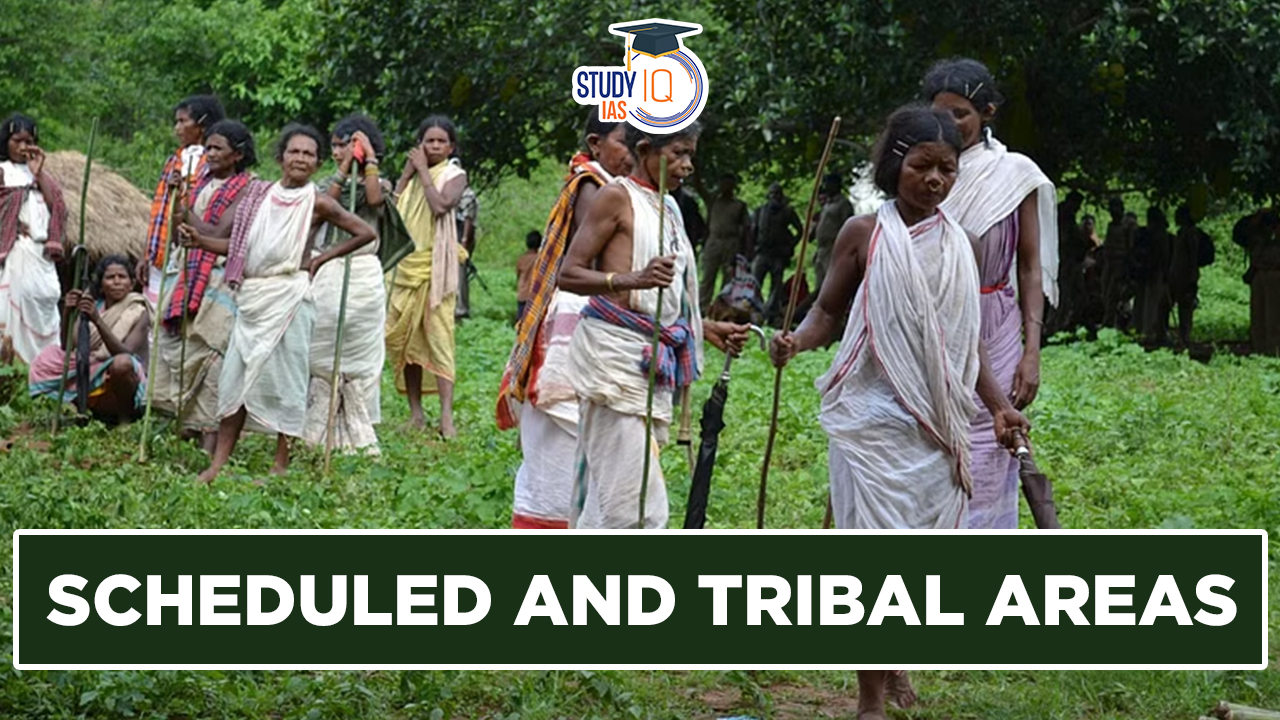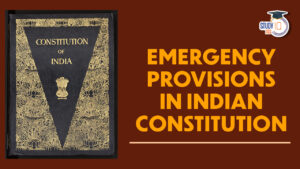Table of Contents
Scheduled and Tribal Areas
Scheduled and Tribal Areas are two concepts used in India to identify regions that are inhabited by indigenous or tribal communities. Scheduled Areas refer to those areas in India that have been identified by the Constitution as being “Scheduled” for the purpose of providing special protections and benefits to the indigenous communities living there.
The Scheduled and Tribal Areas is an important part of Indian Polity which an important subject in UPSC Syllabus. Students can also go for UPSC Mock Test to get more accuracy in their preparations.
Scheduled and Tribal Areas Introduction
Scheduled Areas refer to areas that have been identified by the Indian Constitution as being “Scheduled” for the purpose of providing special protections and benefits to the indigenous communities living there. These areas are usually located in remote, economically disadvantaged regions of the country, and are home to a significant population of Scheduled Tribes (STs). The Constitution provides for a system of governance in these areas through the Fifth Schedule, which lays down provisions for the administration and management of these areas, including the appointment of Tribal Advisory Councils.
Scheduled and Tribal Areas Significance
Due to the presence of some of India’s most vulnerable and marginalized groups, Scheduled and Tribal Areas are significant. These communities are intended to be empowered and included in the nation’s larger socio-economic and political landscape through the particular arrangements created for their governance and development. However, there are obstacles that prevent these provisions from being implemented effectively, such as corruption, ineffective bureaucracy, and political interference.
Scheduled Areas and Fifth Scheduled
The Fifth Schedule of the Indian Constitution covers the administration and control of Scheduled Areas and Scheduled Tribes.
Criteria for Scheduled Areas:
- Tribal population of at least 50%
- Compact and reasonably sized area
- Underdeveloped area
- Economic disparity compared to neighboring areas
Provisions:
- Article 244(1): Applies to all states except Assam, Meghalaya, Tripura, and Mizoram.
- Declaration: The President can declare or alter Scheduled Areas, consulting the state’s Governor.
- Executive Power: States have executive power over Scheduled Areas; the Center can give directions.
- Tribes Advisory Council (TAC): Established in each state with Scheduled Areas, consisting of up to 20 members, primarily from Scheduled Tribes.
Governor’s Authority:
- Can modify or exclude laws in Scheduled Areas.
- Make regulations for peace and good governance after consulting the TAC.
Other Provisions:
- Panchayat (Extension to Scheduled Areas) Act, 1996: Extends Part IX of the Constitution to Scheduled Areas with modifications.
- States Covered: Andhra Pradesh, Chhattisgarh, Gujarat, Himachal Pradesh, Jharkhand, Madhya Pradesh, Maharashtra, Odisha, Rajasthan, Telangana.
Challenges:
- TACs have less power than Autonomous District Councils.
- Lack of clarity on TAC composition and the Governor’s discretionary power.
- Inadequate protection against tribal land encroachment.
- Regulations are sometimes framed by state governments rather than the Governor.
Scheduled Areas and Sixth Scheduled
Areas in the States of Assam, Meghalaya, Tripura, and Mizoram that have been designated as “tribal areas” are covered by the Sixth Schedule under Article 244(2) of the Constitution, which calls for District or Regional Autonomous Councils in these regions. The governor has the power to reorganize these, change the boundaries, delineate the limits of the areas, hold elections, set the requirements for office, etc.
The Governor may split an autonomous district into multiple autonomous districts if there are various tribes living there. District Councils are composed of 30 members, with 26 elected by the UAF and 4 are appointed by the governor, for each autonomous district. Members who are nominated serve at the governor’s pleasure while elected members serve terms of five years. For each area designated as an independent area under this timetable, each autonomous region also has a unique Regional council. With the approval of the President, District and Regional Councils have some legislative and judicial duties.
| Areas under the Sixth Schedule of the Indian Constitution | |
| Part I (Assam) |
|
| Part II (Meghalaya) |
|
| Part II-A (Tripura) | The Tripura Tribal Areas District |
| Part III (Mizoram) |
|
5th Schedule Vs 6th Schedule
| Fifth Schedule of the Indian Constitution | Sixth Schedule of the Indian Constitution |
The provisions regarding the administration and control of Scheduled and Tribal Areas of any state except the four states are mentioned under this schedule:
|
This schedule deals with the administration and control of the scheduled and tribal areas of the four states of the northeast, that are excluded in the fifth schedule:
|
Scheduled and Tribal Areas Constitutional Provision
According to Article 244(1), all states other than Assam, Meghalaya, Tripura, and Mizoram shall administer and control the scheduled territories and scheduled tribes in accordance with the requirements of the fifth schedule. According to Article 339 of the Indian Constitution, the management of Scheduled Areas and the welfare of Scheduled Tribes are under the purview of the Union government.
The Constitution (Amendment) Act of 1976 gave the President of India the authority to change the boundaries of any Scheduled Area in a State after consulting with the Governor of that State, revoke any orders designating any area in a State as a Scheduled Area, or issue new orders redefining the Scheduled Area in question after consulting with the Governor of the State concerned.
Scheduled and Tribal Areas UPSC
Both Scheduled Areas and Tribal Areas are subject to special provisions and protections under the Constitution, such as the right to self-governance, protection of their customary laws and traditions, and special economic and educational benefits. These topics are important for candidates appearing for the UPSC exam, especially those aspiring for civil services or other government positions related to social and economic development in India. Students can read all the details related to UPSC by visiting the official website of StudyIQ UPSC Online Coaching.


 India Mediation Campaign, Objectives, Pr...
India Mediation Campaign, Objectives, Pr...
 Emergency Provisions in Indian Constitut...
Emergency Provisions in Indian Constitut...
 Directive Principles of State Policy (DP...
Directive Principles of State Policy (DP...





















